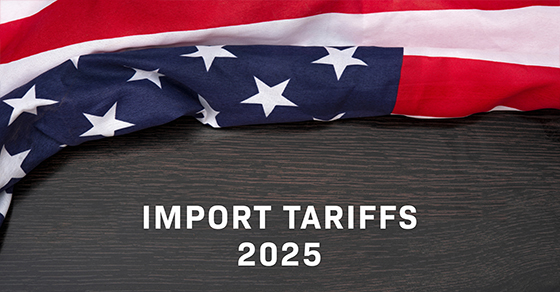Sweeping Tariffs Aim to Boost Domestic Manufacturing, but Raise Global Concerns
In a major policy shift, President Donald Trump announced a sweeping set of tariffs on imported goods during an April 2 speech at the White House Rose Garden. The new measures include a universal 10% baseline tariff on all imports into the United States, regardless of origin. The administration stated this approach aims to bolster domestic manufacturing and restore what Trump called America’s “economic independence.” In total, more than 50 countries were listed for additional tariffs, with rates ranging from 11% to 50%.
“This is a pivotal moment in U.S. economic history,” Trump said. “For over 50 years, American workers and taxpayers have borne the burden of imbalanced trade. That ends today.”
What This Means for Global Trade
The new policy represents a significant and aggressive use of trade tariffs by the U.S.
Global Implications:
- Major Policy Shift: One of the most aggressive tariff actions in decades.
- Economic Nationalism: Emphasis on bringing jobs back to the U.S.
- Market Reaction: U.S. stock futures dipped on investor concern.
- Potential Retaliation: Foreign governments are reportedly considering countermeasures.
Industry Reactions and Political Implications
Reactions from the manufacturing sector and Capitol Hill have been varied and divided.
Domestic Response:
- Manufacturing: Mixed reactions, with some unions supportive and others worried about export tariffs.
- Capitol Hill: Divided, with some Republicans in favor and others concerned about impacts on farmers and exporters.
Tariffs in Detail
The newly announced tariff rates cover many countries with significant variations.
Tariff Rates by Country (Examples):
- China: 34%
- India: 26%
- European Union: 20%
- Vietnam: 46%
- Cambodia: 49%
- Sri Lanka: 44%
- Japan: 24%
- Israel: 17%
- South Korea: 26%
- Additional Tariffs: These are on top of a previously announced 25% tariff on foreign-made automobiles.
Implementation and Outlook
The new tariffs are set to take effect soon, with importers bearing the initial costs.
Implementation Timeline and Impact:
Differing Perspectives: Supporters see economic revival potential, while critics warn of inflation and global tension.
Effective Date: Expected to begin April 9.
Responsibility for Costs: U.S. importers will pay the additional tariffs.
Policy Finalization: The tariffs were finalized shortly before the public announcement.
As a professional – Revolutionize your tax workflow with our complete suite of tools: onboarding links, initial interviews, compliance planning, calendars, messaging, task management, and TaxMan for advanced tax research. Please sign up. Our resource directory also offers valuable links to assist in managing various financial and legal aspects of a business or individual.
Subscribe to Our Newsletter: https://bit.ly/4ilgFtk
You will get:
- Tax News & Regulations Updates
- New Court Cases Explained
- Upcoming Podcast Alerts
- IRS-ready Guides to Present or Share with Your Advisor








